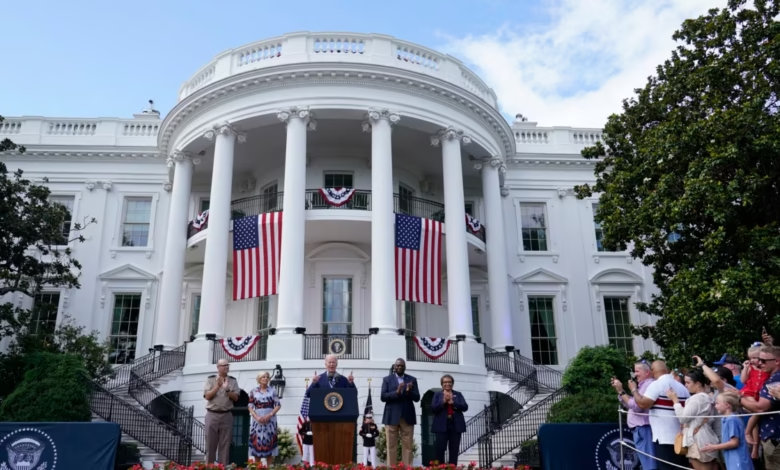
The Trump administration is advancing plans to rename the Department of Defense as the Department of War, marking one of the most significant White House announcements in recent months. This groundbreaking decision represents a return to historical military nomenclature and signals a major shift in how the United States approaches its defense strategy. The White House announcement has generated widespread discussion across political circles, military communities, and defense experts nationwide.
President Donald Trump said he has a “feeling we’re going to be changing” the name of the Department of Defense to the Department of War, possibly over the next week. This government announcement reflects the administration’s commitment to restoring what they consider traditional American military values and organizational structure. The proposed change would reverse decades of established military branding and could have far-reaching implications for national security policy.
The significance of this White House announcement extends beyond simple rebranding. It represents a philosophical shift in how the administration views America’s military role globally. By reverting to the historical Department of War designation, the Trump administration aims to project strength and decisiveness in an increasingly complex geopolitical landscape. This official announcement has sparked debates about military identity, congressional approval processes, and the broader implications for American foreign policy.
Understanding the Historical Context of the Department Name Change
The Original Department of War Legacy
The Department of War served as America’s primary military organization from the nation’s founding until 1947. Trump responded, adding that the Department of War was the name under which the U.S.’ armed forces had “won World War I, we one World War II.” This historical precedent forms the foundation of the current White House announcement and provides context for understanding why the administration considers this change significant.
The original Department of War oversaw critical military operations during America’s most defining conflicts. From the Civil War through both World Wars, this department coordinated national defense efforts and established the United States as a global military power. The government announcement to restore this designation reflects a desire to reconnect with this legacy of military success and decisive action.
Post-World War II Transformation
The Department of War was renamed the Department of Defense under President Harry S. Truman, who aimed to improve efficiency and cohesion in the U.S. military. This change occurred during a period of military reorganization following World War II, when policymakers sought to modernize defense structures and create more unified command systems. The current White House announcement proposes reversing this decades-old decision.
The Truman-era transformation represented a philosophical shift toward more defensive positioning in military strategy. However, the recent official announcement suggests the current administration believes this approach may be outdated. President Trump on Monday floated returning the Department of Defense to its prior name, the Department of War, calling its current moniker “too defensive.”
Congressional Approval and Legislative Requirements
The Path to Implementation
Rep. Greg Steube, R-Fla., has filed an amendment to the annual defense policy bill that would formally change the name of the Department of Defense to the Department of War. This legislative action demonstrates that the White House announcement has already gained congressional support, though the full approval process remains pending.
The government announcement requires careful navigation of legislative procedures. Congressional approval is typically necessary for such significant organizational changes, though “I’m sure Congress will go along with that,” Trump responded, suggesting confidence in legislative support. This aspect of the official announcement highlights the collaborative approach between executive and legislative branches.
Political Support and Opposition
The White House announcement has generated mixed reactions across political lines. Supporters argue that the name change reflects a stronger, more assertive military posture that aligns with American historical traditions. Critics question whether such symbolic changes address substantive defense needs or merely serve political messaging purposes.
The timing of this government announcement coincides with broader military policy discussions, including budget allocations, troop deployment strategies, and international alliance commitments. These factors influence how lawmakers and defense experts evaluate the proposed changes outlined in the White House announcement.
Military Community Response and Strategic Implications
Defense Leadership Perspectives
Military leadership has remained largely diplomatic regarding the White House announcement, recognizing that organizational names often reflect broader strategic philosophies. The proposed change from Department of Defense to Department of War signals potential shifts in military doctrine, operational priorities, and international engagement approaches.
Defense Secretary Pete Hegseth’s involvement in promoting this initiative, as referenced in recent reports, demonstrates high-level military support for the official announcement. This backing from senior defense officials lends credibility to the administration’s arguments about restoring military tradition and projecting strength.
International Relations Considerations
The White House announcement regarding the Department of War renaming carries significant international implications. Allied nations closely monitor American defense policy changes, and this symbolic shift may influence diplomatic relationships and military cooperation agreements. The government announcement could be interpreted as signaling more aggressive military postures in global conflicts.
International defense partners may need reassurance that the name change doesn’t indicate fundamental shifts in alliance commitments or cooperative security arrangements. The White House announcement must balance domestic political messaging with international diplomatic considerations to maintain global security partnerships.
Implementation Timeline and Practical Considerations
Administrative Restructuring Requirements
The White House announcement involves extensive administrative changes beyond simple name modifications. Government documents, military protocols, organizational charts, and countless official references would require systematic updates. This aspect of the official announcement presents significant logistical challenges for implementation.
Budget allocations, personnel assignments, and operational procedures all reference the current Department of Defense designation. The government announcement necessitates a comprehensive review and revision of these systems to reflect the new Department of War identity. These practical considerations influence the timeline and feasibility of the proposed changes.
Public Communication Strategies
Effective implementation of the White House announcement requires clear public communication about the reasons, benefits, and implications of the name change. The administration must address questions about whether this represents substantive policy changes or primarily symbolic adjustments to military identity and messaging.
The official announcement strategy includes educating military personnel, defense contractors, international partners, and American citizens about the significance of returning to the Department of War designation. This communication effort supports broader acceptance and understanding of the policy change.
Economic and Budgetary Implications
Cost Considerations for Rebranding
The White House announcement involves significant costs for implementing the name change across all military operations and facilities. From updating signage and documentation to revising contracts and agreements, the Department of War transition requires substantial financial investment. These economic factors influence congressional approval and public support for the initiative.
Defense industry partners, military contractors, and government agencies must adjust their operations to reflect the new designation outlined in the government announcement. This coordination effort represents both challenges and opportunities for organizations working within the defense sector.
Long-term Strategic Investments
Beyond immediate rebranding costs, the White House announcement may signal broader changes in defense spending priorities and strategic investments. The Department of War designation could influence how resources are allocated across different military programs, research initiatives, and operational requirements.
The official announcement reflects the administration’s broader defense philosophy, which may impact funding decisions for various military branches, special programs, and international cooperation efforts. These financial implications extend well beyond the symbolic aspects of the name change.
Conclusion
The White House announcement regarding the Department of Defense to Department of War renaming represents a significant moment in American military history and policy development. This government announcement reflects the current administration’s commitment to restoring what they view as traditional military values while projecting strength in an increasingly complex global security environment.
The success of this initiative depends on congressional approval, military community support, international diplomatic considerations, and effective implementation strategies. The official announcement has already generated substantial discussion and debate, indicating its importance to various stakeholders across military, political, and civilian communities.
As this White House announcement moves through the approval process, Americans will witness how symbolic changes in government organization can reflect broader philosophical shifts in national defense strategy. The proposed return to the Department of War designation may influence military culture, international relationships, and domestic political discourse for years to come.
Read More: How the Shooting in the News Today Is Changing the Conversation on Security






